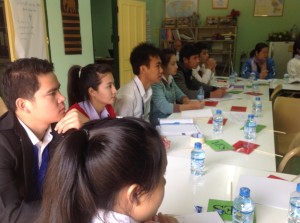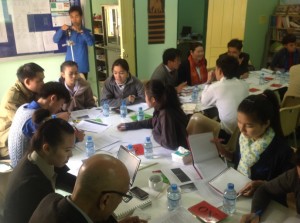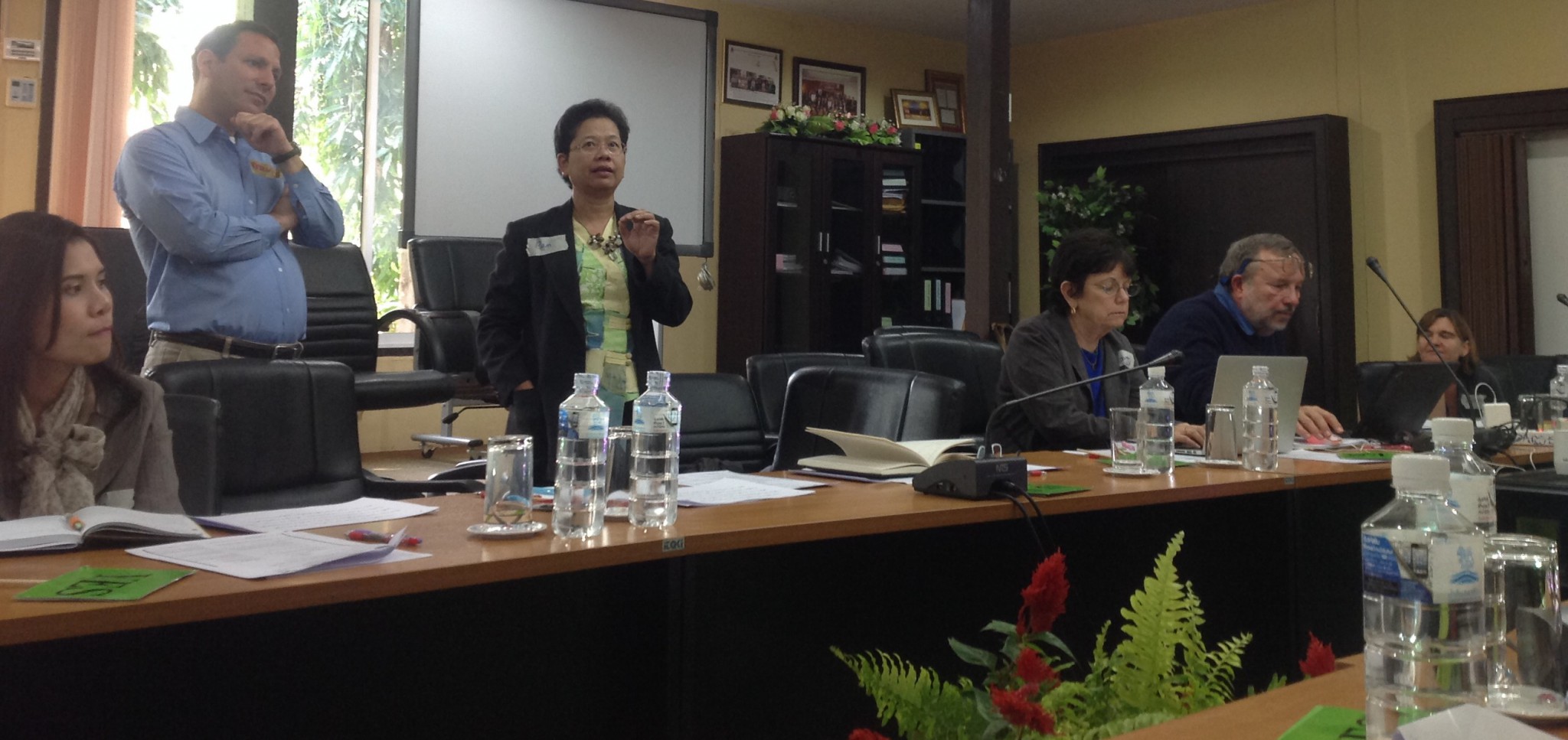By: Pavina Thephithuck, BABSEACLE and FLP Legal Fellow
On the 20th-21st of January 2014, the Faculty of Law and Political Science, Lux Development and BABSEACLE Initiative organized a workshop on Legal Ethics, Pro Bono Lawyering and Access to Justice. The workshop was also used to test chapters of a new manual being developed by BABSEACLE, DLA Piper, Herbert Smith Freehills, Australian Government Solicitor and other partners, titled Legal Ethics, Pro Bono and Professional Responsibility. Bruce A. Lasky and Wendy Morrish from BABSEACLE, Don Peters Emeritus Professor of Law, Trustee Research Fel low and Director of the Institute for Dispute Resolution at the University of Florida, Annette Bain Head of Pro Bono and Community at Herbert Smith Freehills, and Philippa Hinton and Annette Urguijo from DLA Piper and New Perimeter (International law firm DLA Piper’s global Pro Bono initiative) were all present as trainers for the two-day workshop. The workshop had more than 30 participants including law lecturers, law students, and lawyers from the Laos Bar Association, Village Focus International, and the Asia Foundation. The workshop took place at the Clinical Legal Education office at the Faculty of Law and Political Science, National University of Laos (Donnokhom Campus). The trainers made full use of many CLE methodologies to make the workshop more interactive and ensure that everyone understood clearly and could follow and enjoy the lessons. Some of the teaching methods employed by the trainers were role-plays, group discussions, games, videos, and poster making.
low and Director of the Institute for Dispute Resolution at the University of Florida, Annette Bain Head of Pro Bono and Community at Herbert Smith Freehills, and Philippa Hinton and Annette Urguijo from DLA Piper and New Perimeter (International law firm DLA Piper’s global Pro Bono initiative) were all present as trainers for the two-day workshop. The workshop had more than 30 participants including law lecturers, law students, and lawyers from the Laos Bar Association, Village Focus International, and the Asia Foundation. The workshop took place at the Clinical Legal Education office at the Faculty of Law and Political Science, National University of Laos (Donnokhom Campus). The trainers made full use of many CLE methodologies to make the workshop more interactive and ensure that everyone understood clearly and could follow and enjoy the lessons. Some of the teaching methods employed by the trainers were role-plays, group discussions, games, videos, and poster making.
Philippa Hinton, a solicitor from DLA Piper Australia and one of the trainers and authors of the curriculum, said, “Having been a member of the team developing the curriculum on paper, the workshop provided a valuable opportunity to test these materials out in a clinical legal education setting, and gain important feedback from participants about both the delivery and the content of the concepts that are canvassed in the curriculum. The workshop gave me a great insight into the value of clinical legal education in Laos, and the work of BABSEA CLE more broadly. On a personal level, I found the experience delivered me a renewed appreciation for the importance of pro bono work and improving access to justice which I will carry forward with me into my own professional practice.”
Annette Urquijo, Risk Management Legal Counsel & Head of Risk Management in the Middle East from DLA Piper Australia, also a trainer and contributing author at this workshop said, “It was a privilege to attend the workshop in Laos as a facilitator. I feel that the facilitators learnt as much from the students as they did from us. I was impressed with the students’ enthusiastic approach to the workshop and their willingness to participate. It was rewarding to see how the students absorbed the topics we taught and for them to start to challenge their own preconceived ideas in relation to legal ethics and pro bono. Seeing this change and the impact that our sessions had on the students’ thinking really made the trip worthwhile and validated what the project is trying to achieve and the hard work we put into producing the materials.”
Thongxay, a law student at the Faculty of Law and Political Science at the National University of Laos, said, “The legal ethics that I learnt from this workshop were more interesting than what I have learnt from my classes and also I understood more because it was very easy to understand through the use of role plays.”
Thatsanalone Sisounoun, a law lecturer, added, “When I first walked into this workshop I thought: I don’t need to be here as I’m already a law lecturer and also this subject is what I teach every day. But I thought I would come and listen for just a bit to see what they were going to train and I finally chose to join and realized that I was wrong to only use lectures in my class, what I need is to have more interactive CLE teaching methodologies as well.”
Everyone present enjoyed the workshop immensely and came away with a greater knowledge and appreciation of CLE methodologies and the merits they hold for law students and legal education as a whole.

